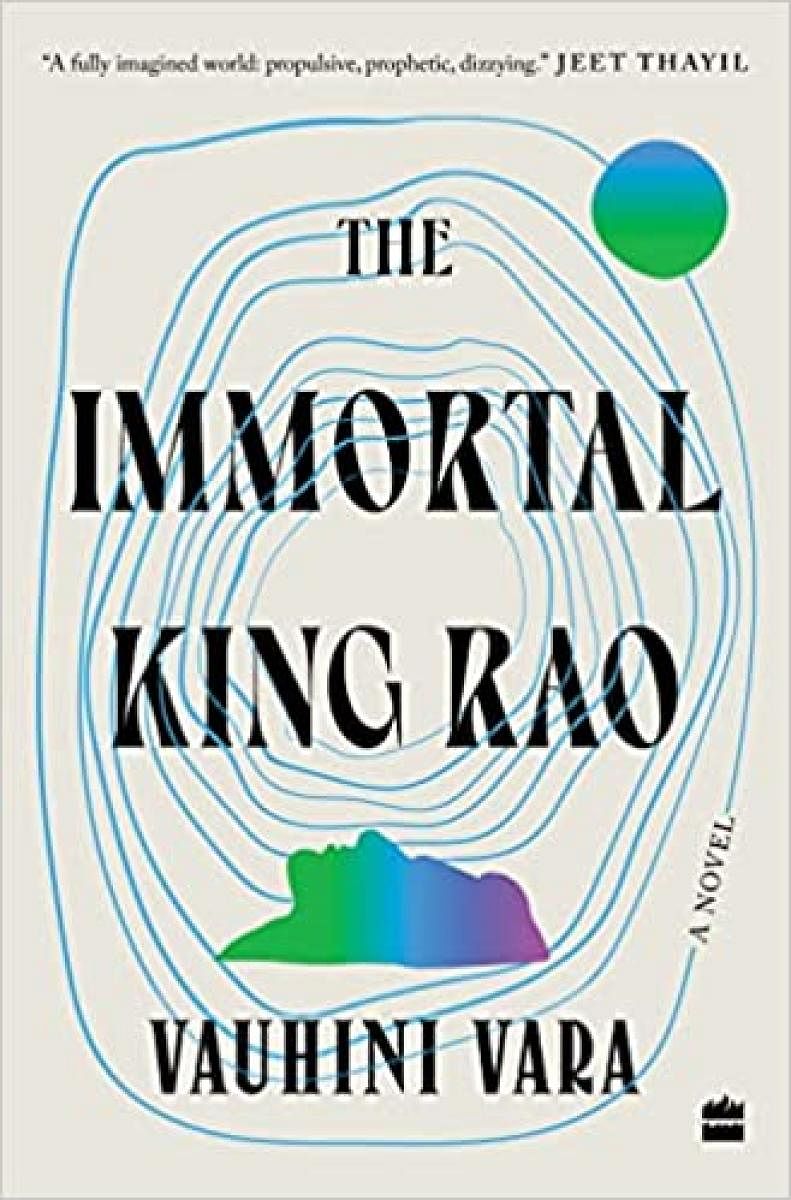
Writers who create new worlds lead you to them through the proverbial Narnian cupboards. Suddenly, you are in a different world; the contours may seem vaguely familiar but the rest of the world is thrillingly new. Vauhini Vara’s ‘The Immortal King Rao’ does just that. It is speculative fiction but the dystopian new world that Vara draws seems to be culled from an ongoing or impending reality.
The book deals with so much and it does so across different timelines. The central character is King Rao, named thus by an Anglophile uncle. One part of the story traces the growth and eventual disintegration of Rao’s Dalit family of coconut farmers in the village of Kothapalli. Another part deals with King Rao’s life from his humble beginnings as an immigrant in the US to his rise and eventual downfall. Then there is the part of a dystopian new world in which King Rao and his daughter Athena’s lives play out. The plotting is intricate, the story moves deftly between different timelines all braided masterfully, and the pace is propulsive.
The growth of Rao’s family mirrors his own in the US. Both trajectories are propelled by ambition and a desire to leave modest circumstances behind. And of course, the surname ‘Rao’ is adopted by the Dalit family for pragmatic reasons since a Brahmin surname would be good for business.
The crashing of a dream
However, it is technology that helps King Rao climb to dizzying heights. His genius lies in creating products that the world gets quickly hooked onto. In describing these products, Vara cleverly combines the familiar with the imagined. Some like the ‘Harmonica’, which attempts to introduce artificial intelligence into the human brain, is an imaginative feat of fantasy, and Vara’s writing makes it seem like a real possibility. The explosion of technology combined with unbridled capitalism, the famed motto of tech entrepreneurs to move fast and break things, the repercussions of such disruption in real terms and the pushback, all create the setting for how King Rao’s story plays out in the US. He is both Steve Jobs and Sundar Pichai combined. And inevitably, even as King Rao’s reach exceeds his grasp, his immigrant dream crashes. In the present-day part of the book, the new world is peopled by the Exes. They have chosen to move away from the inequitable technology-driven world and have settled down in islands, seemingly off the grid, attempting to live a sustainable life according to the Utopian principles of peace and brotherhood. They strive to live their lives practising the famous slogan of Marx: from each according to his ability, to each according to his needs. Athena and King Rao’s journey is tracked in this world. It is here that Athena grows up, and it is here that King Rao meets his end.
A grim world
The delineation of this world is done in an exciting, imaginative way. The division of the world between the Shareholders and the Exes, their different ways of life, both in terms of physical space and their mentality, the little details that make up their world, the trenchant observations of an algorithm-dominated bleak world… the author draws you into this world, making you feel as troubled as the Exes in the face of the Shareholders’ callous Nero-like attitude to the world being destroyed.
In a book teeming with characters, it is to the author’s credit that most are drawn with defining strokes. Here, character is destiny. The moving relationship between father and daughter shines through even as it is located in the nightmare of the grim world they live in.
Much is explored in this book, like caste, race, politics, capitalism, technology, and the repercussions of all of this on human lives. People like the Czech President Havel and the Russian anarchist Bakunin are quoted.
There is a story that concerns the Chinese philosopher Zhuangzi, there is another one about Thomas Edison. There is much Vara wants to tell us and all of it is easily integrated into the story with a wide arc. We are left mulling over questions like, why is the human race so oblivious to its own mortality? Why do we keep wanting to know why we are here? Does ambition invariably translate into greed?
There is great skill at work here in drawing worlds, real and imagined, incorporating technology and philosophy, and yet keeping human relationships at the heart of the story. Put simply, this is an astonishing debut.